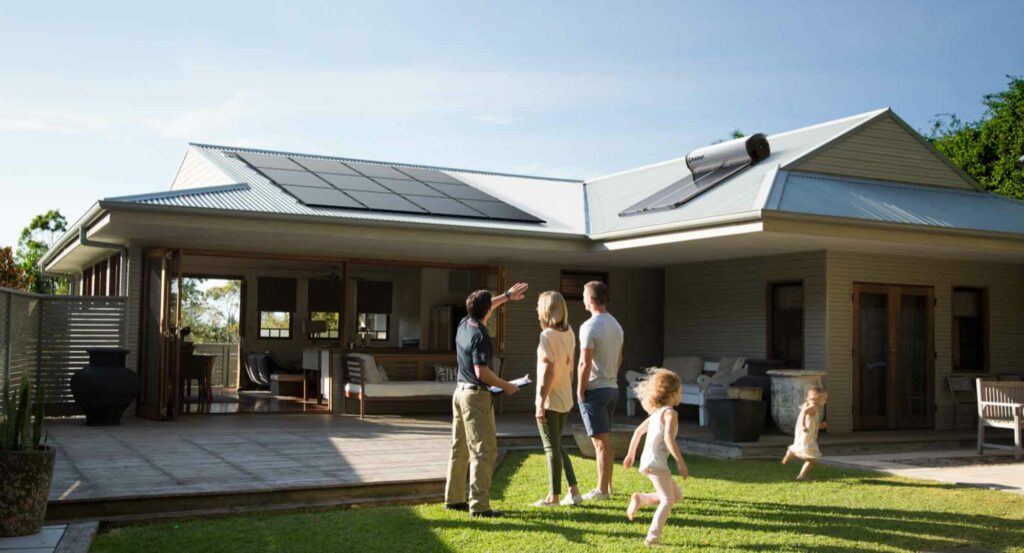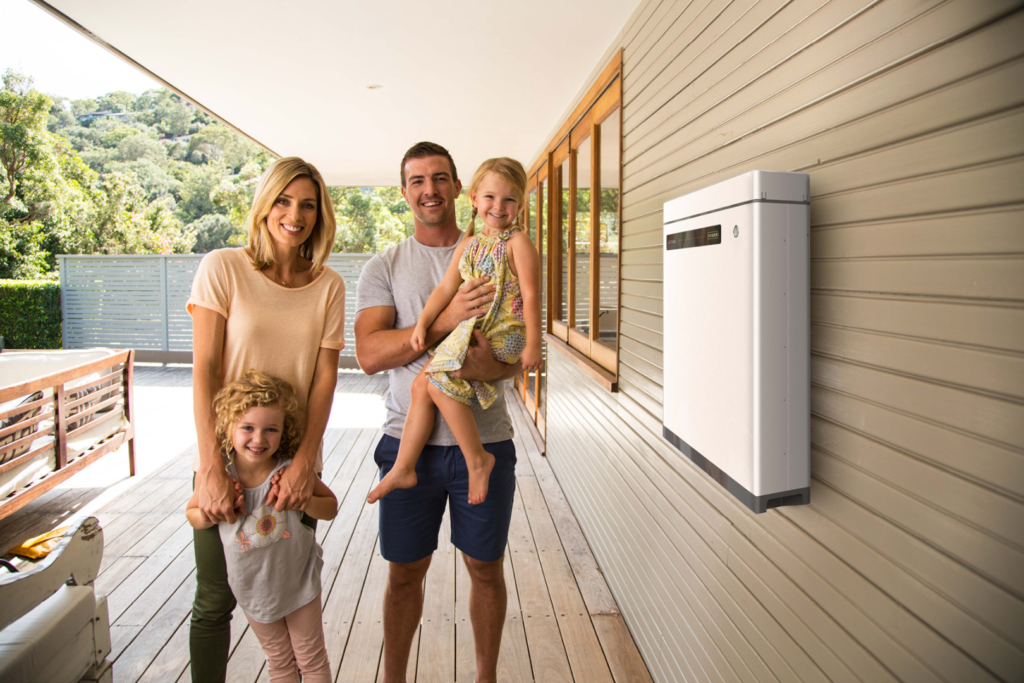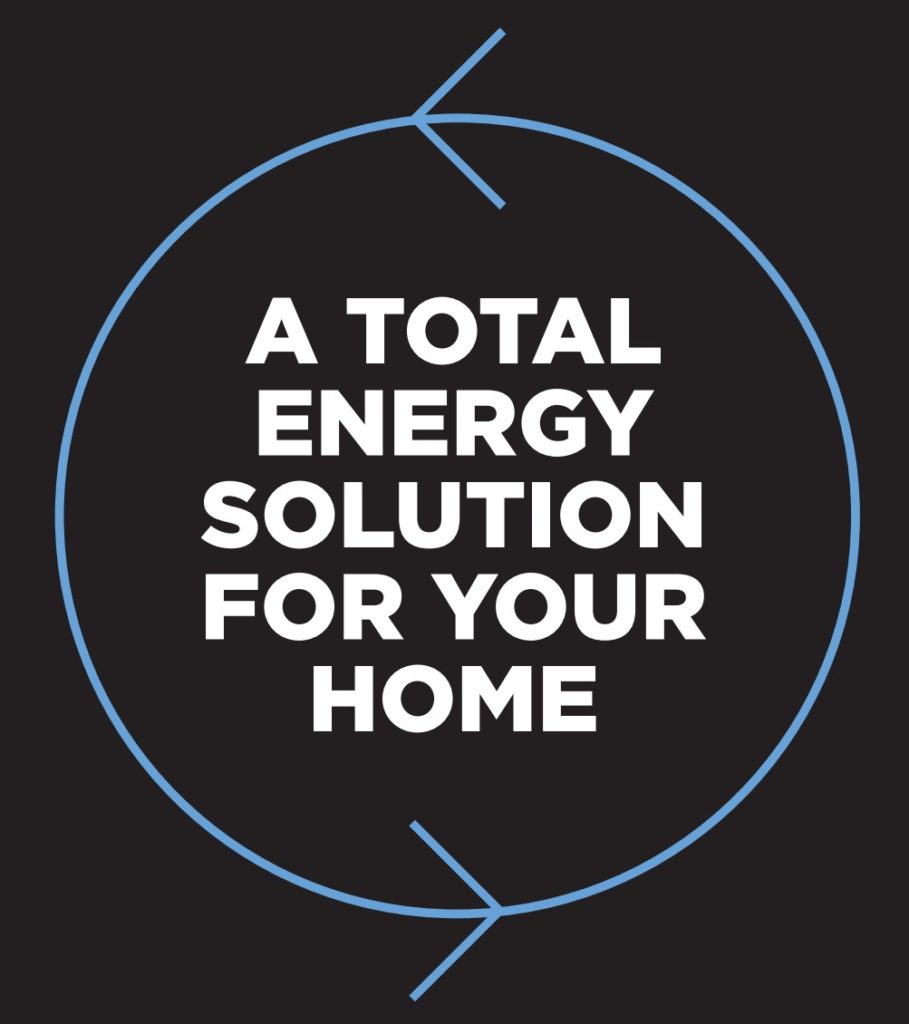Contact Information
- Solahart Central Coast
- Unit 2, 25 Alliance Avenue
- Morisset NSW 2264
- 1300 362 821
- centralcoastsolahart@bigpond.com

Solar power is becoming increasingly popular for homeowners looking to reduce their electricity costs. By harnessing the sun’s energy, you can generate clean, renewable power for your home, lower your electricity bills and contribute to a greener future for our planet.
In this article, we’ll explain everything you need to know about choosing the right solar power system for your home.
If you’ve been looking for alternative ways to power your home, you’ve undoubtedly considered installing a solar power system. In Australia, solar power has seen tremendous growth in recent years. As of 2024, an estimated 3.29 million Australian homes have installed rooftop solar systems, compared to 5.7 million homes without solar power.
This surge is driven by high electricity prices, generous government solar energy rebates, a sunny Australian climate that makes solar energy an attractive option and increasing awareness of the environmental issues caused by fossil fuel consumption.
Before you begin choosing the right solar power system for your home, it’s essential to understand how solar panels work.
Solar panels are made up of photovoltaic (PV) cells, which convert sunlight into direct current (DC) electricity. An inverter then changes this DC electricity into alternating current (AC), which powers home appliances.
Any excess electricity can be fed back into the grid, and some systems include a solar battery to store extra energy for use at night or during cloudy periods. Most homes remain connected to the electricity grid to ensure a continuous power supply, drawing additional power when needed.

There are several factors you must consider when choosing the right solar power system for your home, such as:

When installing a solar power system in your home, you want to ensure you get the most out of your investment. Here are some practical solar panel efficiency tips you can implement to increase your solar power system ROI.
Residential solar panel configurations typically fall into two main types: roof-mounted and ground-mounted systems.
Roof-mounted systems are installed directly on your home’s roof, utilising existing space efficiently and often costing less to install. However, they may be subject to shading and could require modifications for optimal sun exposure.
In contrast, ground-mounted systems are installed on the ground, offering flexibility in placement for optimal sun exposure regardless of roof orientation. They provide easier maintenance access but have higher installation costs and use up ground space.
Choosing between these two residential solar panel configurations comes down to factors such as available space, budget, and sun exposure.
When determining the size of your solar power system, you must first analyse your household’s energy needs. Review your electricity bills to understand your average energy consumption over time.
Once you know your home’s average energy consumption, you can use a solar system size calculator to calculate the size of the solar power system you’ll need. These calculators consider location, roof orientation, shading, and energy usage patterns to recommend an appropriate system size.
One of the biggest benefits of solar energy systems in households is maximising the solar power system cost savings.
Solar energy offers substantial long-term savings on electricity bills. By generating your own electricity, you can reduce reliance on the grid and mitigate against rising energy costs over time. Calculating your solar power system ROI involves evaluating your current energy usage and estimating future savings based on solar production.
Several factors influence the solar power system ROI, such as solar power system efficiency, local electricity rates, solar energy rebates and incentives, solar system financing options, installation and solar power system cost, and maintenance considerations.
Government and utility incentives, such as solar energy rebates, significantly reduce initial costs. These rebates aim to offset the upfront costs of purchasing and installing solar panels. The most common type of rebate in Australia is the Small-scale Technology Certificates (STCs) scheme.


In Australia, homeowners have several solar system financing options to help cover the upfront costs of solar power system installation. These include solar energy rebates and incentives, solar loans from financial institutions, solar leasing and Power Purchase Agreements (PPAs), home equity loans or lines of credit, and community solar programs.
Comparing these options can help homeowners choose the most suitable solar system financing solution based on their financial situation and energy savings goals.
Choosing among the best solar panel brands is key to maximising your solar power system ROI. When comparing the best solar panel brands, focus on key solar system performance metrics such as solar power system efficiency ratings, durability, warranty coverage, and customer service.
Panels with higher efficiency and longer warranties typically offer better quality and solar system performance metrics, translating into greater savings and a higher solar power system ROI over time.
It’s also essential to understand how to choose a solar installer for your home. Look for installers with proven experience and industry certifications, verify their credentials, seek references or reviews from previous customers and ensure they use high-quality materials.
Choosing the right solar power system for your home involves understanding solar energy cost savings and solar panel efficiency tips.
By selecting the best solar panel brands and a reputable installer, following a thorough solar panel installation guide, and following the best solar panel efficiency tips, you can maximise your energy savings and solar power system ROI. Exploring solar system financing options can also make this transition more accessible.
At Solahart, we specialise in guiding homeowners through every step of the solar power journey. From initial consultation to installation and beyond, our goal is to help you harness the benefits of solar energy efficiently and affordably.
Contact us today to learn more about our solar solutions and start the process of choosing the right solar power system for you.
Bellevorg Pty Ltd (ABN 37 133 510 531), trading as Solahart Central Coast, operates the Solahart dealership in the region covering from the Hawkesbury River, Bucketty, Dooralong, Cooranbong, and across to Caves Beach. NSW Contractor Licence No. 210883C, Electrician Licence No. 211340C, Plumber Licence No. 379864C.
Looking for something else? Search our site here.
Solahart Central Coast
Your trusted solar installer
At Solahart, we’re proud to be leading Australia’s solar charge. Helping smart Aussies make a real difference to the planet, reducing their reliance on the grid, cutting their energy bills, and connecting them to their smart energy future.
Since 1953, we’ve been the trusted name in Australian solar, installing over a million solar hot water systems in over 70 countries, and over 700,000 solar power panels in Australia.